Homemade Butter is so simple, you’ll wonder why you never made your own butter at home before. With only 4 ingredients, you’ll be “churning” every day!
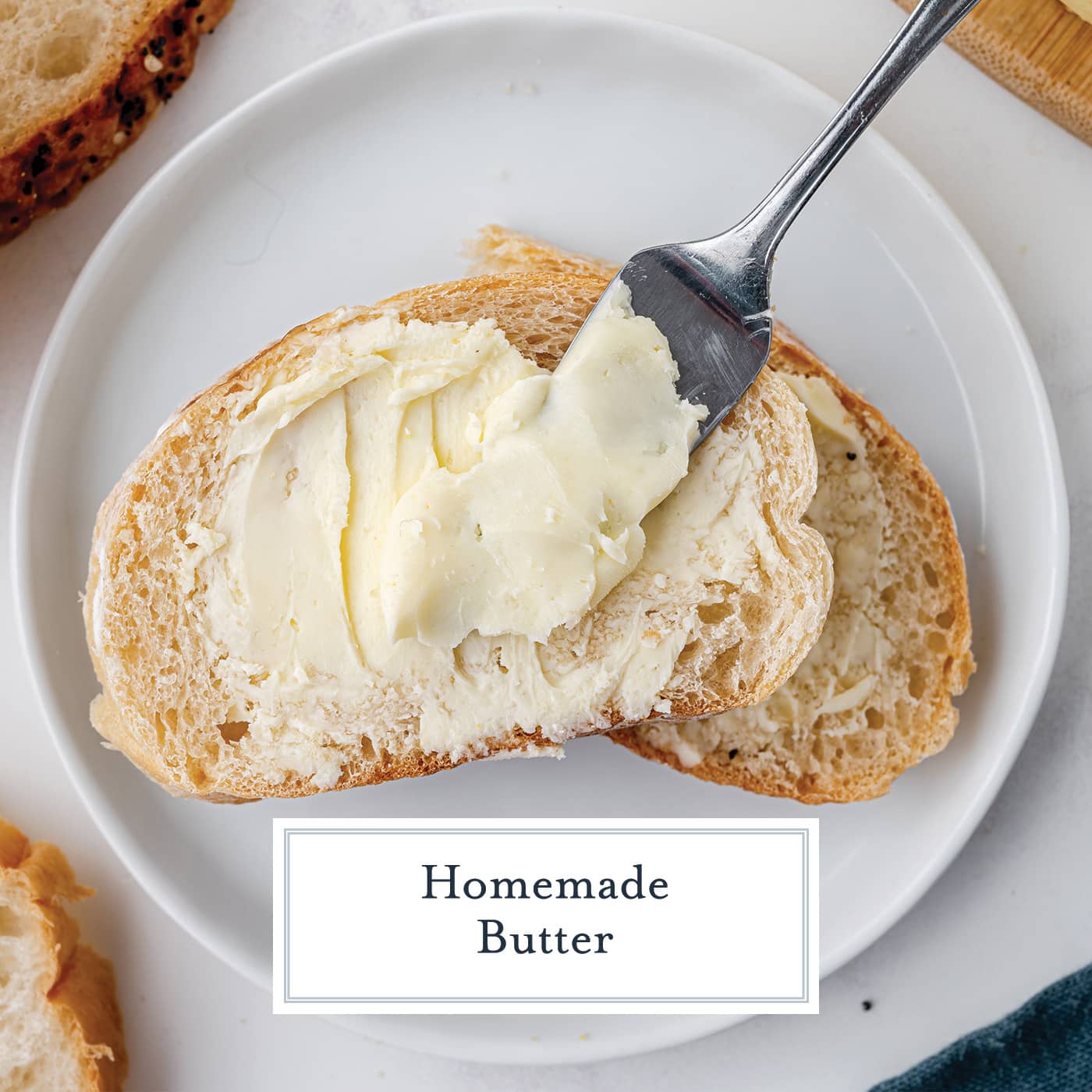
Seriously. Homemade butter is the bomb! And who can say they make their own butter? YOU! Now everyone, bust out their wooden butter churner. (I am 100% kidding.)
Why Is It Better To Make Your Own Butter?
Butter is one of those things I just can’t get enough of. I’ve been known to hoard the butter dish at restaurants. Hubby knows to ask for two right when we sit down. If not, he isn’t getting any. And now my kids are also butter-lovers.
It truly is the most simple thing on the planet. It is simply milk or in this case, heavy cream, that is churned and hopefully well salted.
Making it at home means no additives and no preservatives. You have total control over everything including whether or not you are adding salt and how much. What is not to love?
Most of us are eating cow’s milk butter but you could make butter out of different kinds of milk if you wanted to try a different flavor. Think of it like eat a goat cheese or a sheep’s milk cheese instead of a traditional cow’s milk cheese.
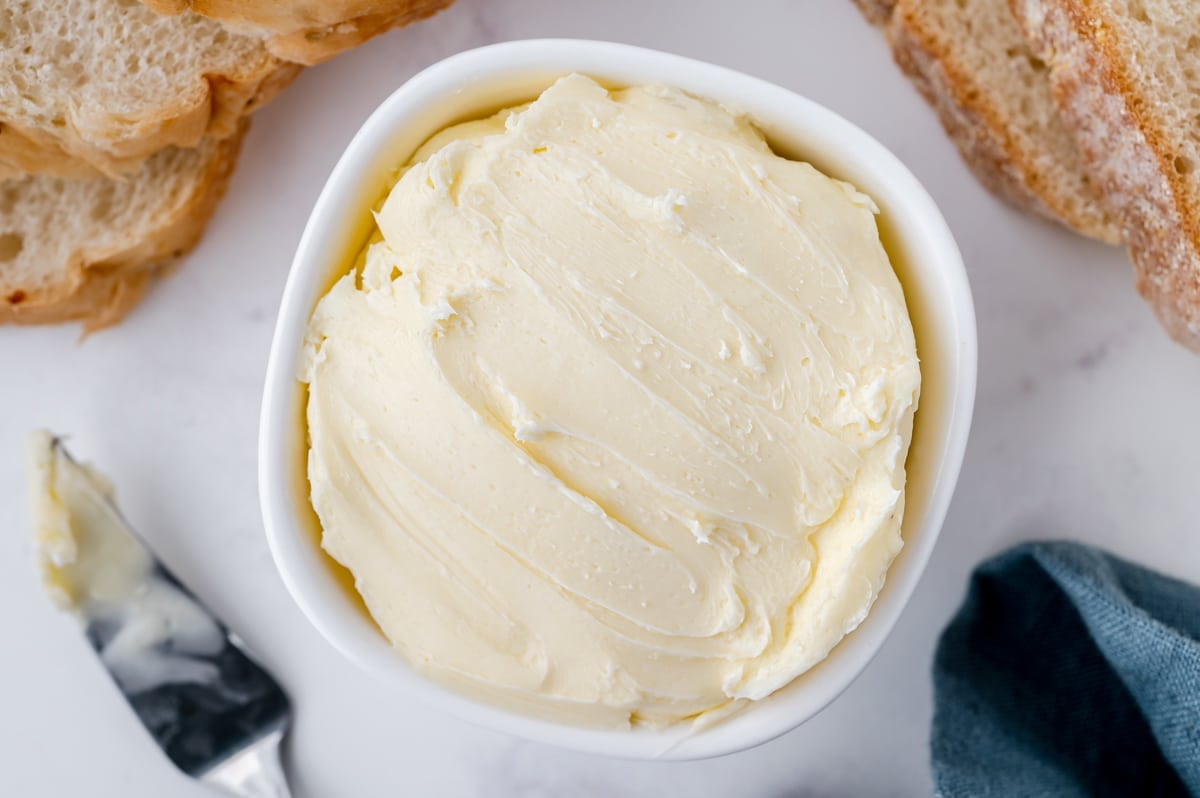
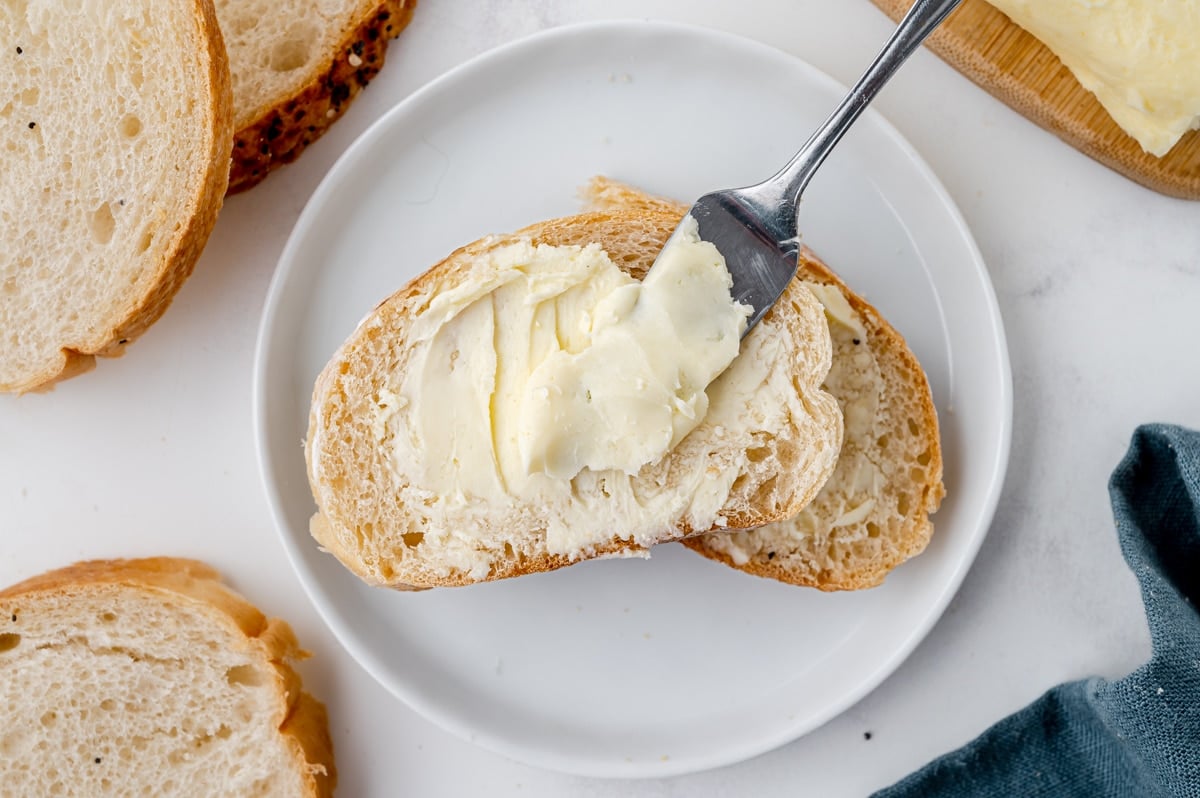
Why You’ll Love This Homemade Butter Recipe
The whole process of making your own butter only takes a couple of minutes from start to finish- what’s not to love!
- Fun activity – I remember making butter in an elementary school class. You can involve the kids in your butter making; it’s an easy science activity for summer when the kids are out of school.
- Easy to make – Sure, it’s easy to go buy a stick of butter from the store; but how satisfying and almost as easy it is to make your own at home!
- Use on anything – You can use fresh butter on anything you’d like to! Slather on a slice of sourdough bread or use it in baking.
- Customizable – You can flavor this butter however you’d like. Make small batches and flavor each of them differently.
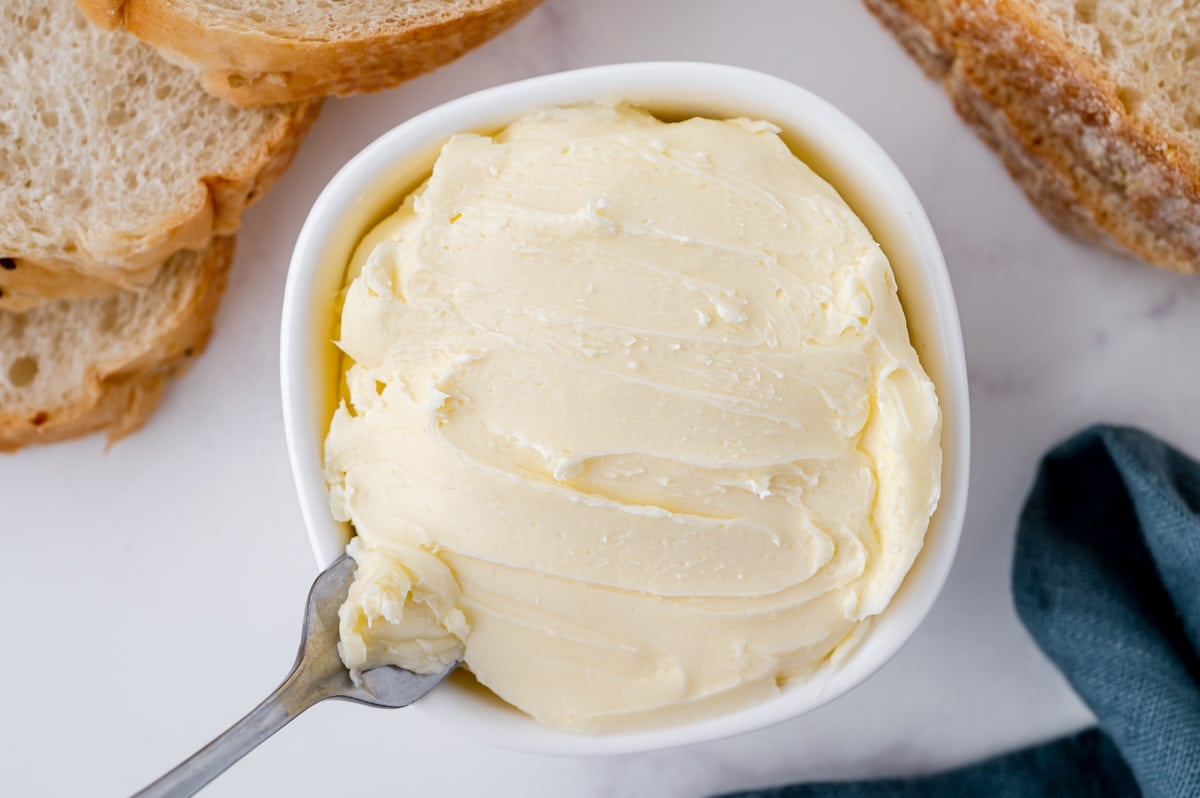
History of Butter
It is believed that the first batch of butter was purely accidental. Someone was riding on a horse with milk and the agitation from riding “churned” the mixture making butter. Salt, a naturally occurring substance, was one of the few seasonings used and so salt was added for flavor, but also to help preserve the mixture.
Since then, it has been used for medicinal purposes, in religious ceremonies and of course, for cooking.
Butter can vary greatly depending on geographic location because they cows making the cream (highest fat content milk skimmed from the top after milking) are eating vastly different diets. You’ll see the most notable differences between American and European butters.
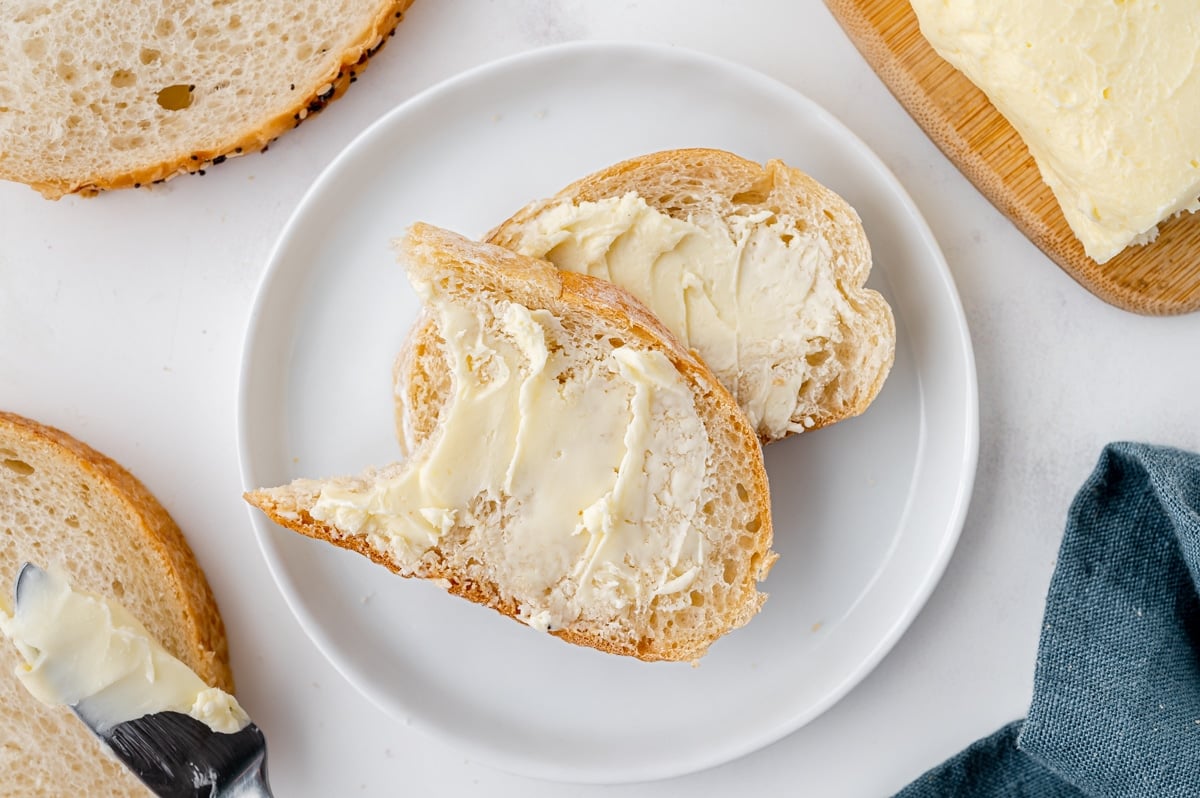
American Butter vs European Butter
European butters are usually darker yellow, churned longer and have a higher butter fat between 82-86%. American style is a little paler and closer to 80% fat. You’ll also see differences in smoke point, texture and consistency.
American butters are usually labeled AA, A and B butters. This also has to do with quality- AA is the best with a higher fat content, least amount of water and longest churn.
Cultured butter just means that the is is made with cream that has sat and cultured (like yogurt) and now has a tangy flavor.
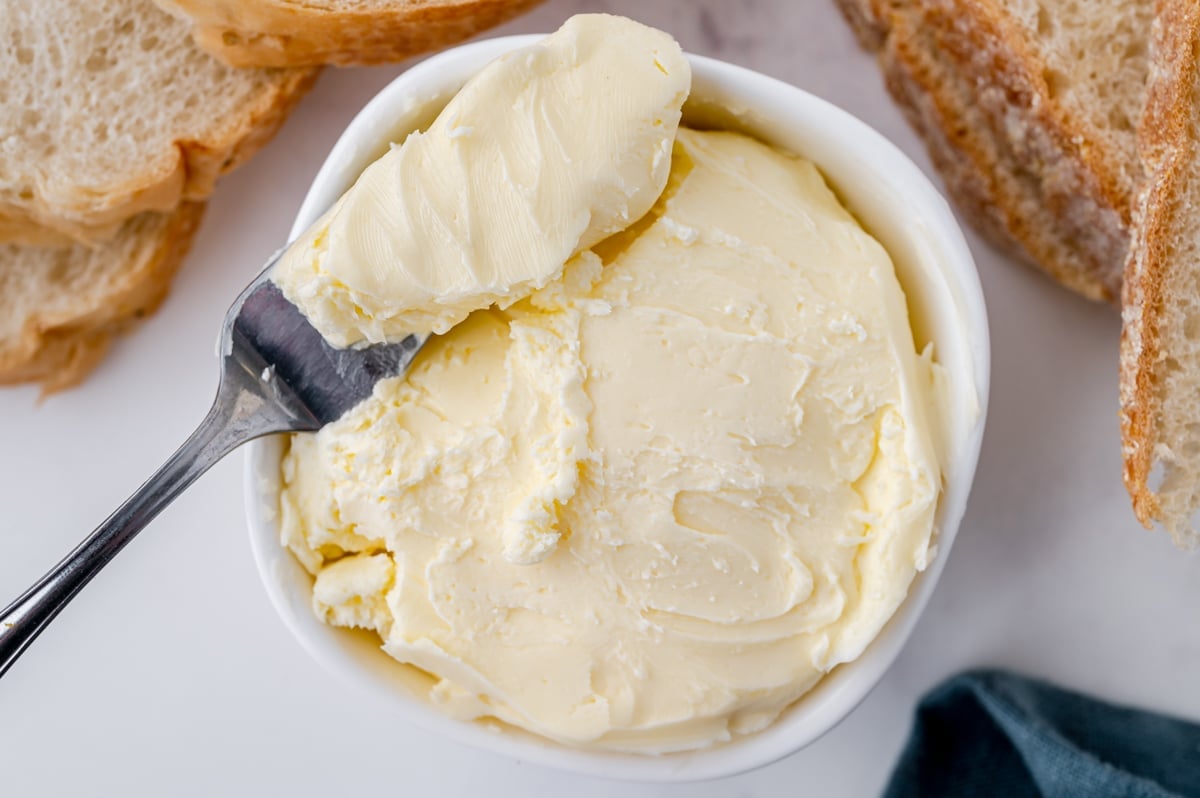
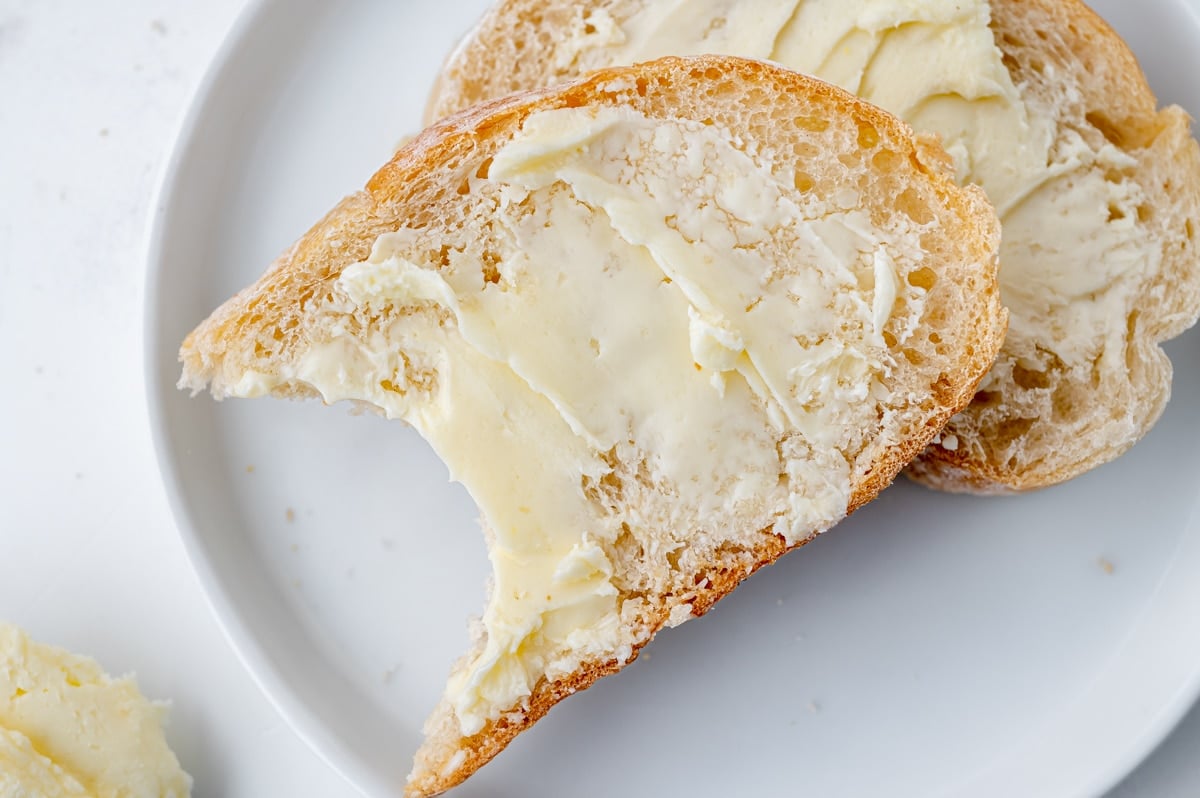
Homemade Butter Ingredients
All of these simple ingredients can easily be found at your local grocery store, if you don’t already have them on hand.
- Heavy cream – Cream will separate into butter and buttermilk as it is agitated and cooled. There is not substitute.
- Salt – Coarse Kosher salt works, but so does cheese salt. Cheese salt is a small and easily dissolvable salt that is not iodized. It is great for flavor and preserving.
- Ice water – Not mandatory, but ice-cold water helps the mixture separated and solidify.
- Desired add-ins – Like fresh herbs, pepper, spices, dried fruits and other seasonings. Check the section below for even more ideas.
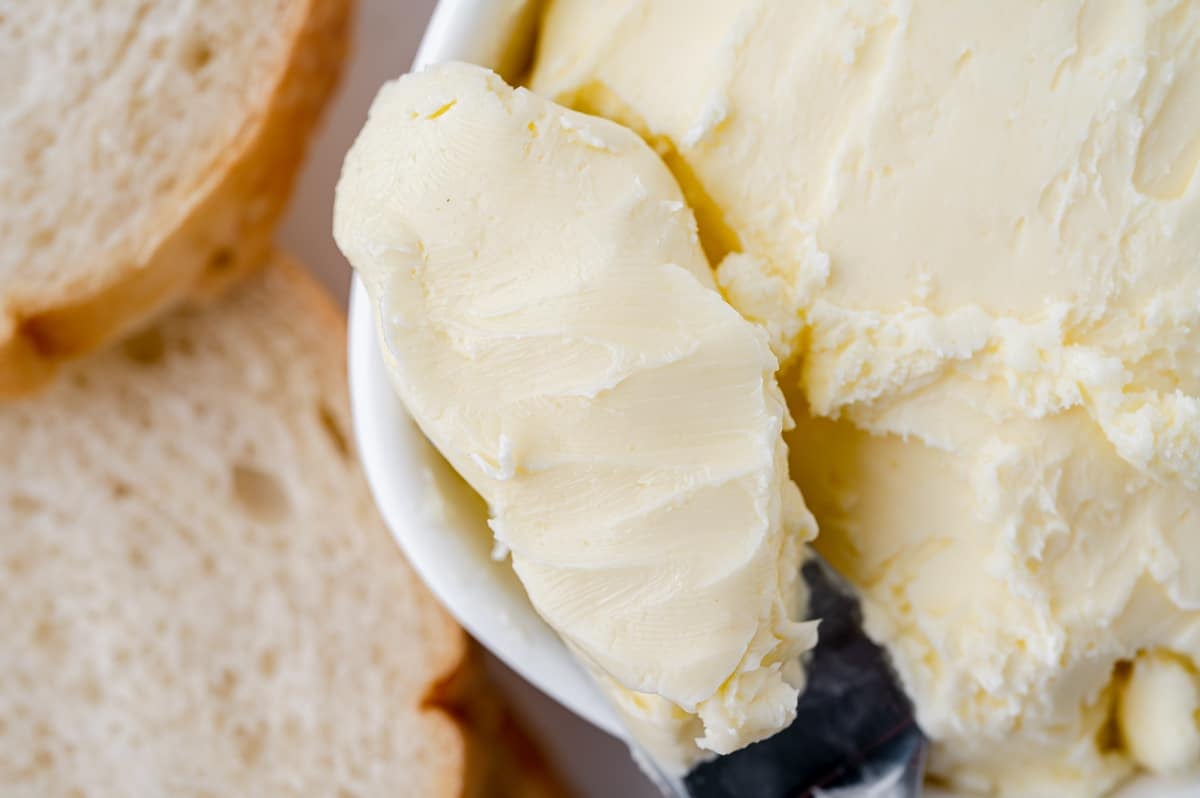
How to Make Homemade Butter
So how does it all work, butter without the churn? Let your food processor or your blender do the work.
When the cream is agitated (spun around in the machine,) it breaks the membranes around the fat granules. These separate and then join together to form clumps. Those clumps are butter! The leftover liquid is homemade buttermilk.
- Add heavy cream to food processor. Place the heavy cream in a food processor or blender. Hit blend and watch your appliance do the work. You will see the mixture changes in both consistency and color.
- Mix until cream separates. Continue to mix until cream separates into butter and butterfat. Drain off the butterfat and discard or save (it’s buttermilk).
- Mix in ice water. Add ice water and continue to blend. Drain off water, then add additional of ice water and repeat. Drain. Mix in the salt and just pulse a few times.
- Add flavorings. Add any other flavors as well- fresh herbs, citrus zest, dried fruit bits or other spices.
- Store or use. Refrigerate until ready to use in any recipe that requires butter.
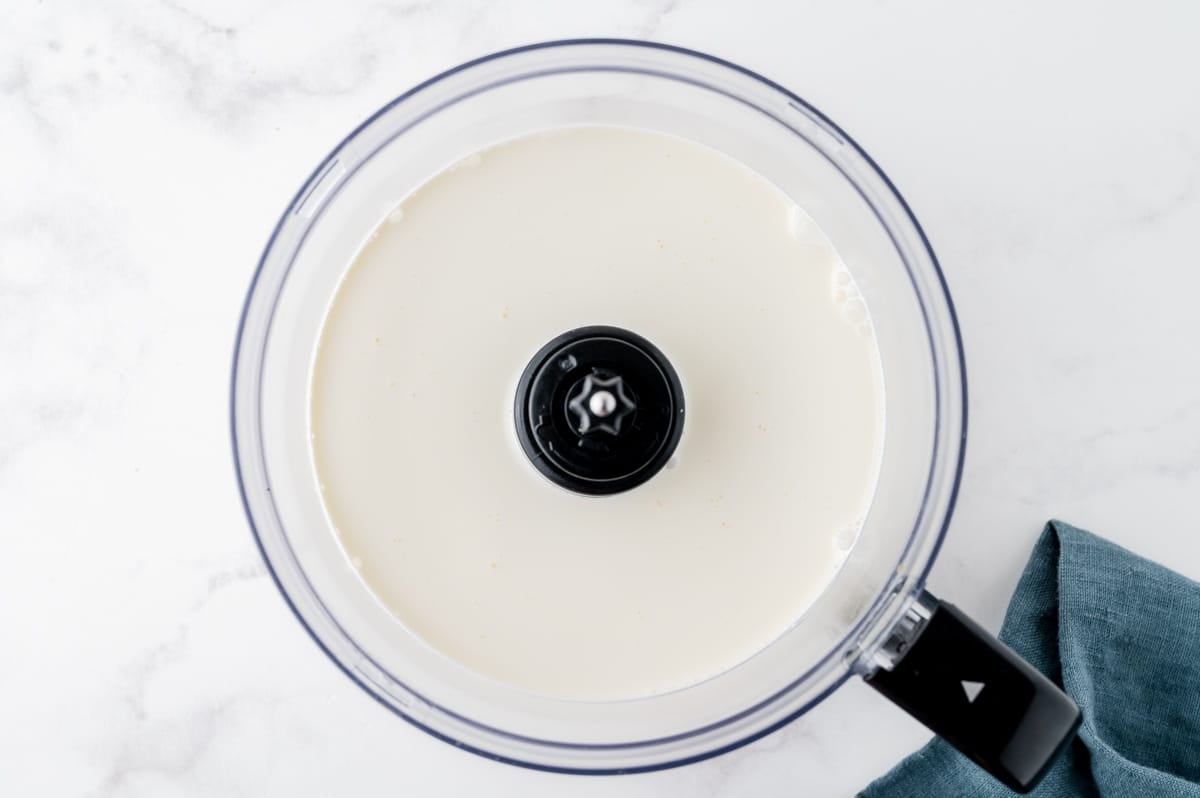
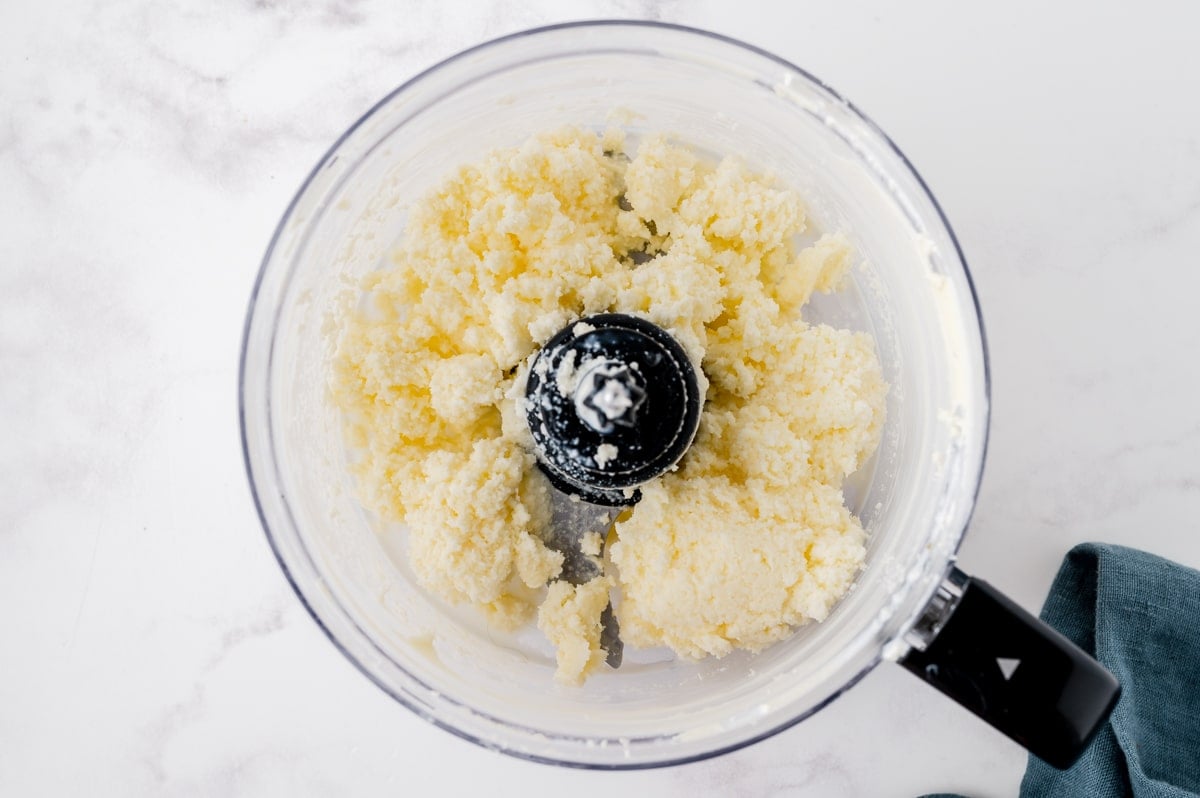
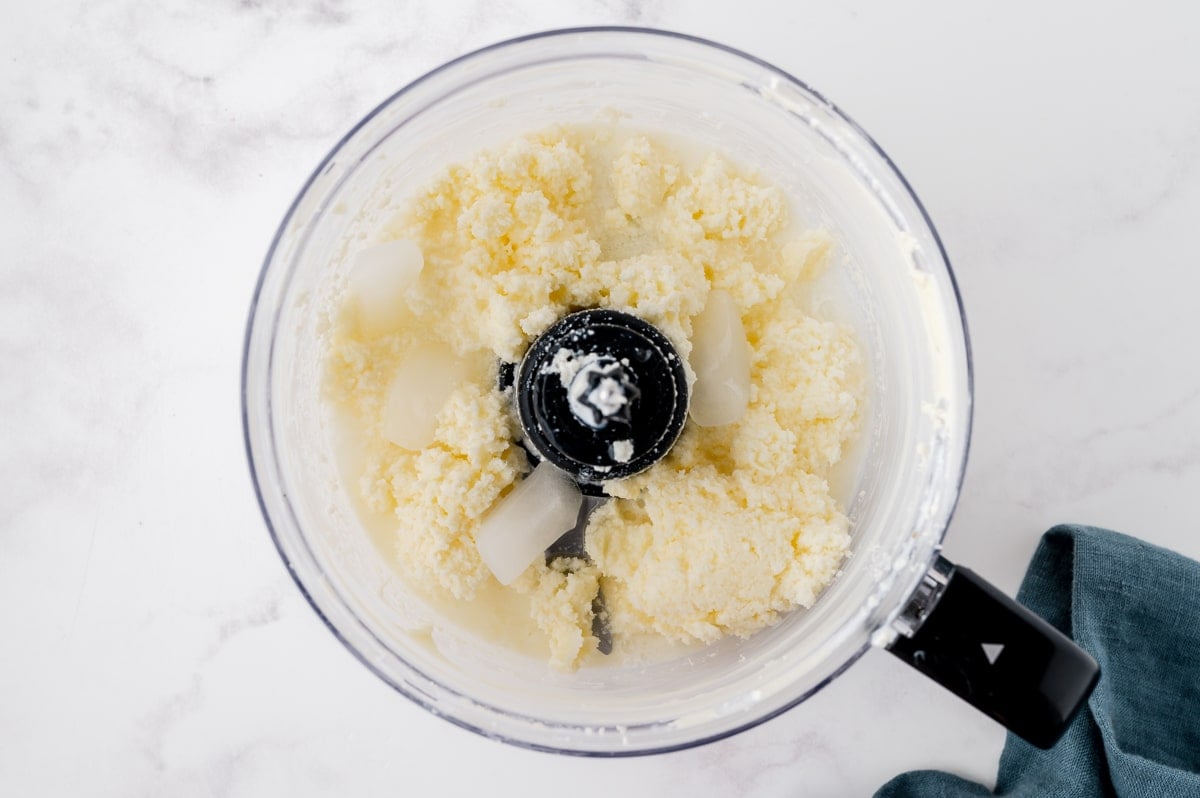
Variations
Once you have the basic homemade butter recipe made, you can then make your own compound butter. Compound butter is flavoring butter in different ways besides salt.
They are great for spreading on bread, topping your favorite steak, making garlic bread…the list goes on and on.
- Fresh herbs – Parsley, cilantro, sage, basil, rosemary, lavender or pretty much any other fresh herb you can think of would taste great in a compound butter.
- Citrus – When paired with the fresh herbs above, orange, lemon or lime zest or juice are perfection in butter.
- Spices – Things like fresh garlic, dried fruit, chili powder, jalapenos, honey, cinnamon or sundried tomatoes are all excellent choices also.
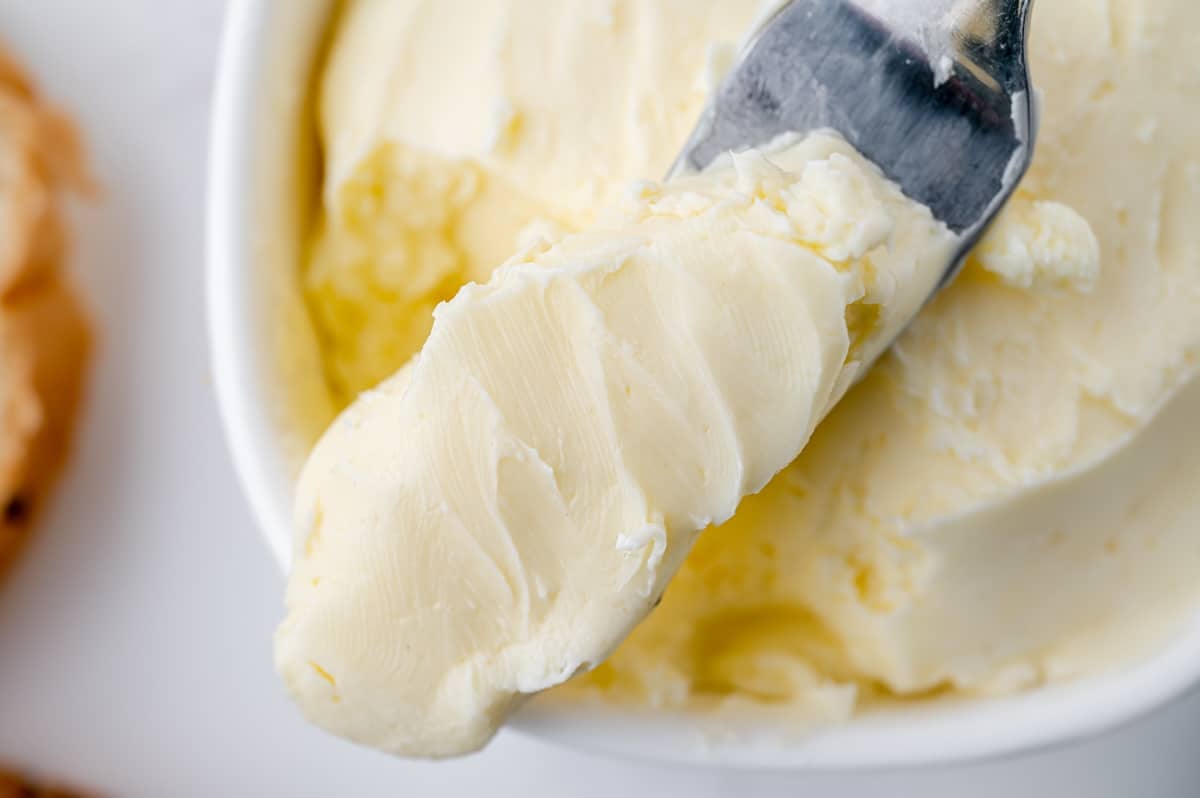
Storage and Freezing
Although salt is a natural preservative, we don’t recommend storing homemade butter for long than 2 weeks. Keep in an airtight container in the refrigerator. Homemade butter can also be frozen.
My favorite ways to store my own homemade butter are in a glass jar like baby food jars or even a mason jar. You could even wrap a ball of butter or log shape in plastic wrap or parchment paper.
Storage: Butter will last in the refrigerator for 2-3 weeks. However, the shelf life depends on how well you extract the buttermilk. If a substantial amount of buttermilk remains, it will sour within a week, because it is, well, buttermilk.
Adding salt helps to preserve it some, but it is fresh cream so it can go rancid.
Freezing: Wrap tightly in aluminum foil or plastic freezer wrap, or place inside a heavy-duty freezer bag.
Frozen salted butter will keep at best quality for up to 12 months, unsalted butter will stay at best quality for about 6 months.
Also, the fresher the butter, the better is freezes.
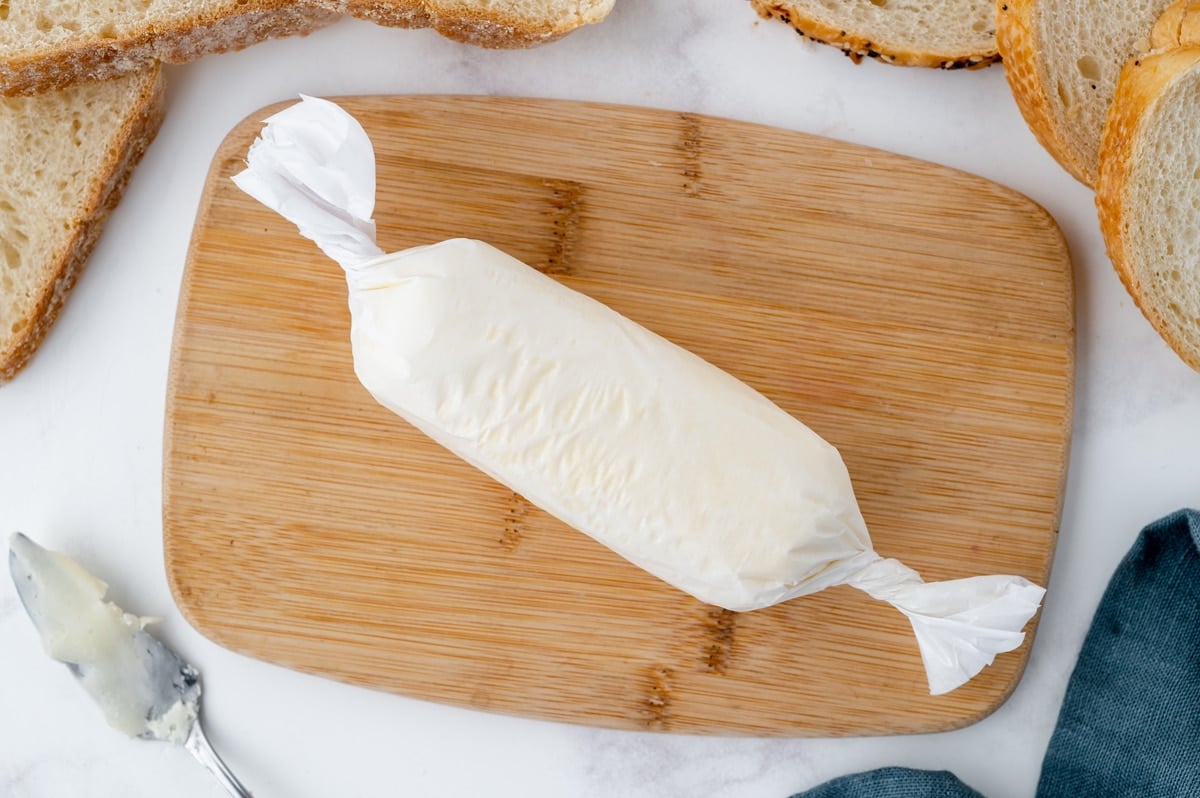
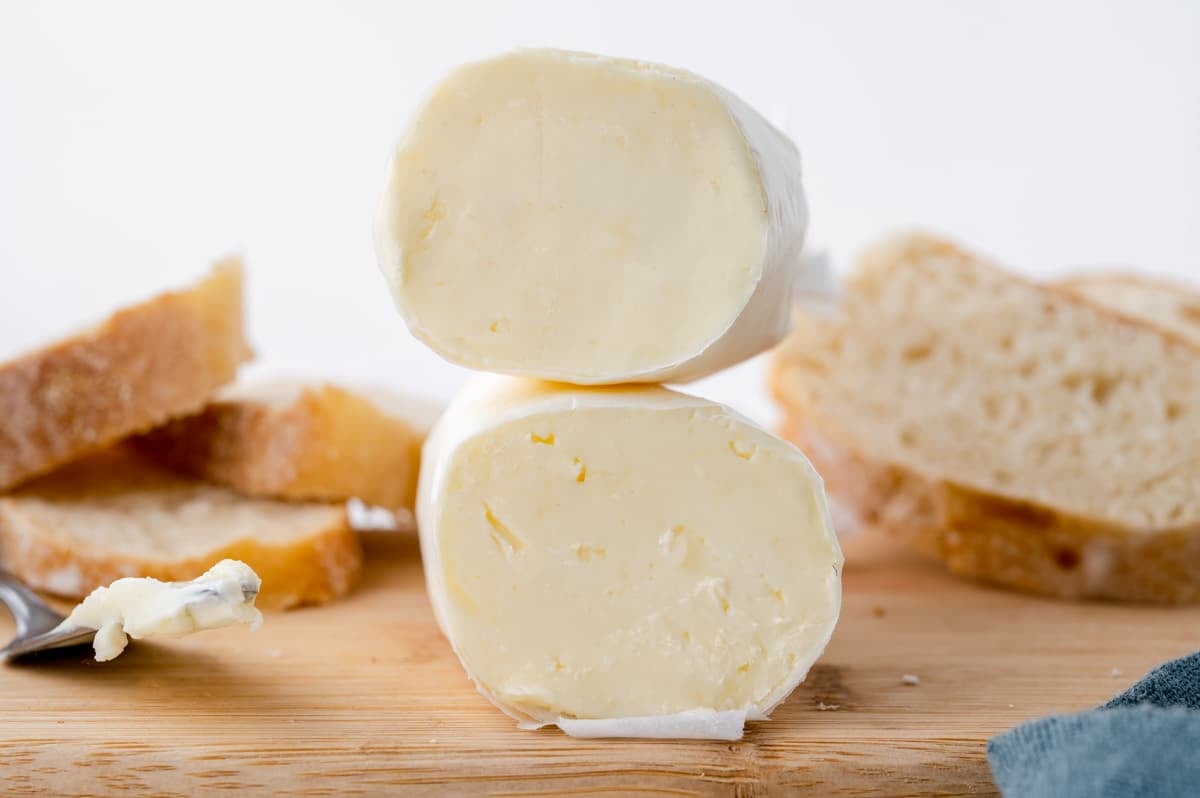
Frequently Asked Questions
The honest answer is probably not. Large butter companies get cream at a cheaper price than you will at the store. But it is so satisfying to make your own and it tastes great!
This really depends on the quality of the ingredients you use. Pay attention to the quality of cream you are using as well as the type of salt.
Yes! Why couldn’t you? Some even believe that since it isn’t perfectly smooth (down on the molecular level) that is produces even better pastries.
Just like store bought butter, the FDA doesn’t recommend leaving it out for longer than 2 hours.
Churning butter in the blender will take 2-5 minutes.
No, you can not make butter from milk, only heavy cream. Cream has more fat solids, which are needed to make solid butter. Milk is too watery.
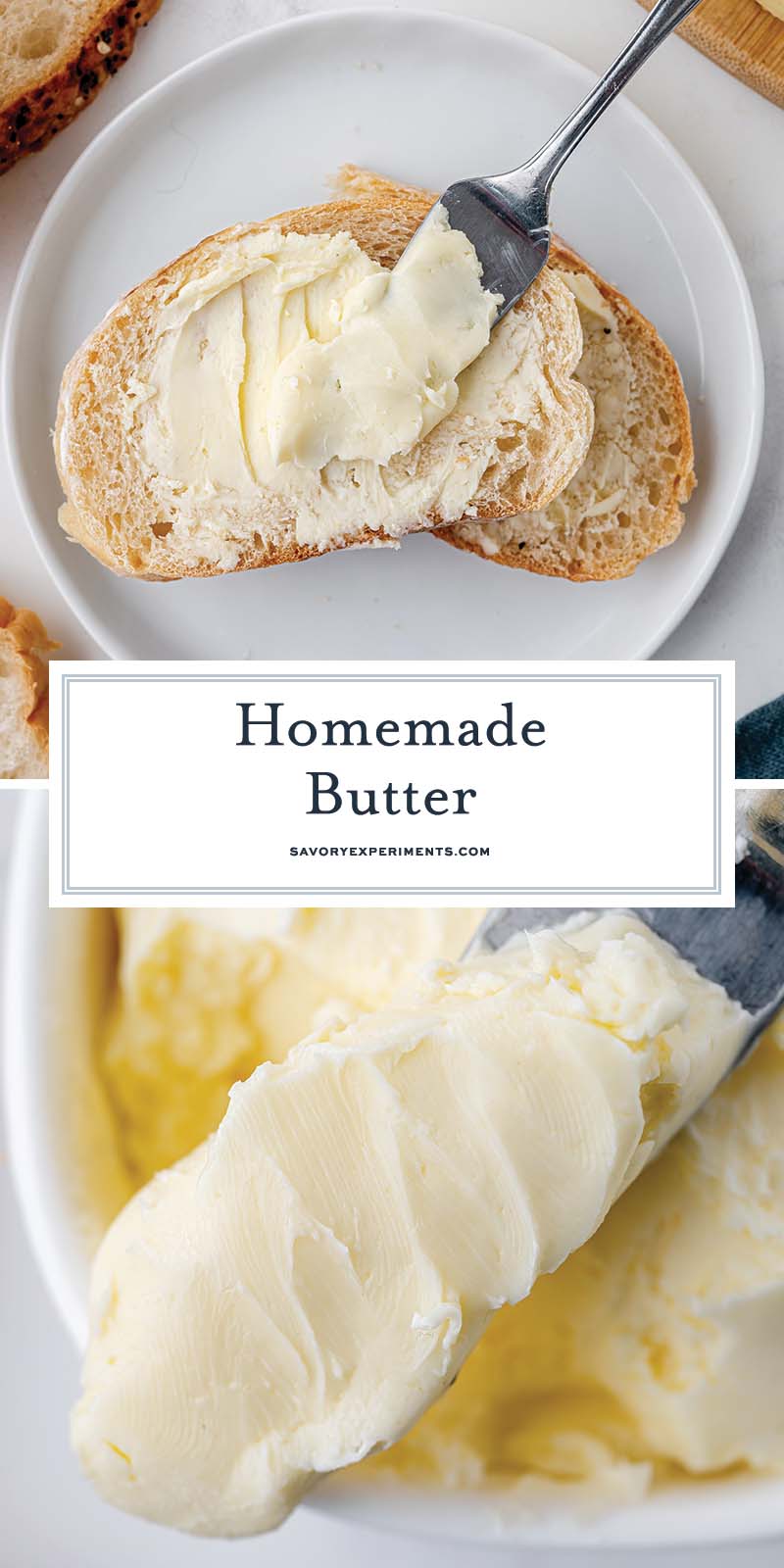
Recipes That Use Leftover Buttermilk
Best Hush Puppy Recipe
Chipotle Ranch Dressing
Pulled Pork and Smoked Gouda Egg Rolls
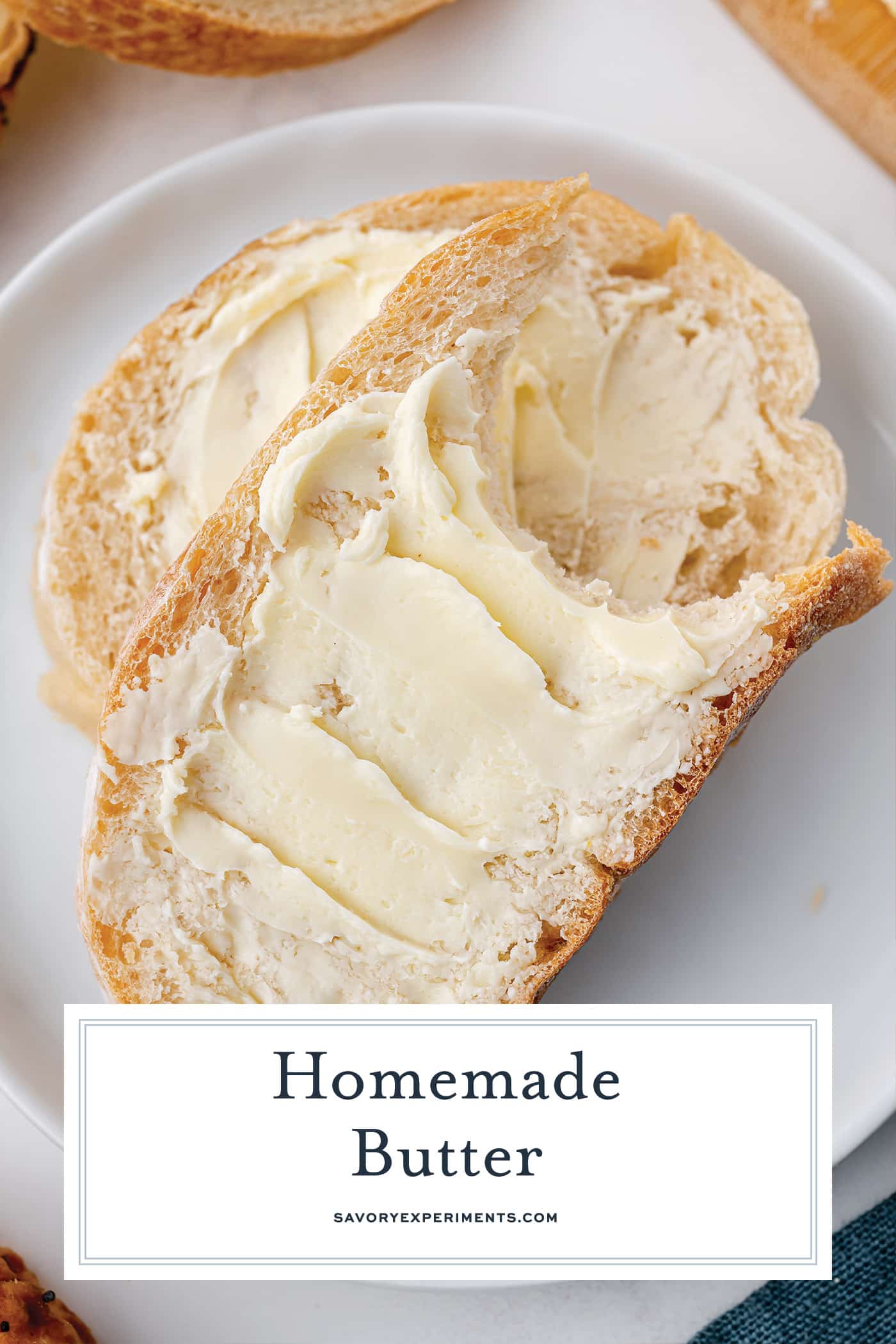
How to Make Butter from Heavy Cream
Equipment
- Cheese Salt , optional
Ingredients
- 1 pint heavy cream
- 1 teaspoon cheese salt or Kosher Salt
- Ice Water
- Desired add-ins
Instructions
- Place the heavy cream in a food processor or blender. Hit blend and watch your appliance do the work. You will see the mixture changes in both consistency and color over about 2-3 minutes.
- Continue to mix until cream separates into butter and butterfat. Drain off the butterfat and discard or save (it's buttermilk).
- Add 1/2 cup of ice water and continue to blend for 30 seconds. Drain off water. Add additional 1/2 cup of ice water and repeat. Drain. Mix in the salt and just pulse a few times.
- Add any other flavors as well- fresh herbs, citrus zest, dried fruit bits or other spices.
- Refrigerate until ready to use in any recipe that requires butter.
- If you've tried this recipe, please come back and let us know how it was in the comments or star ratings.
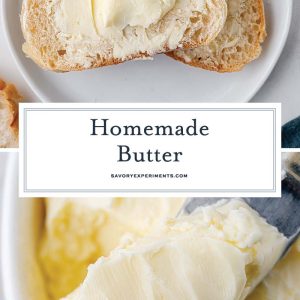
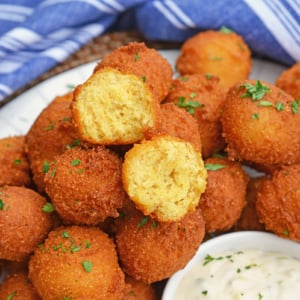
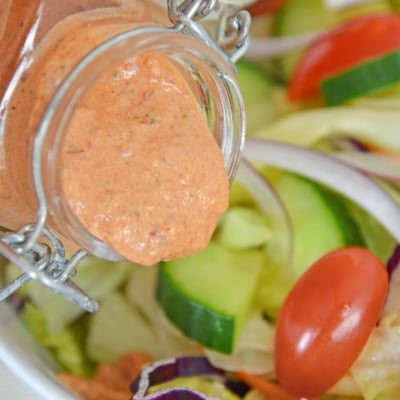

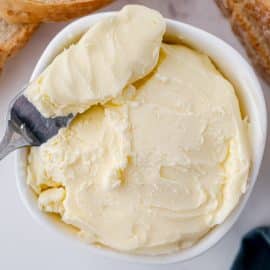
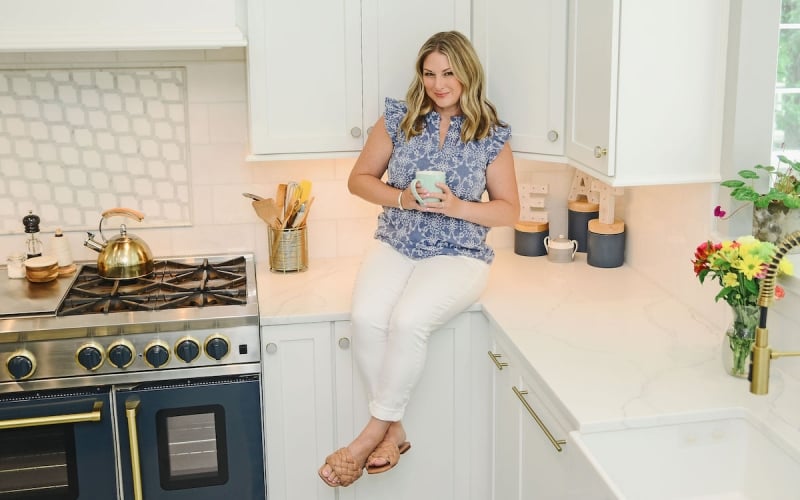
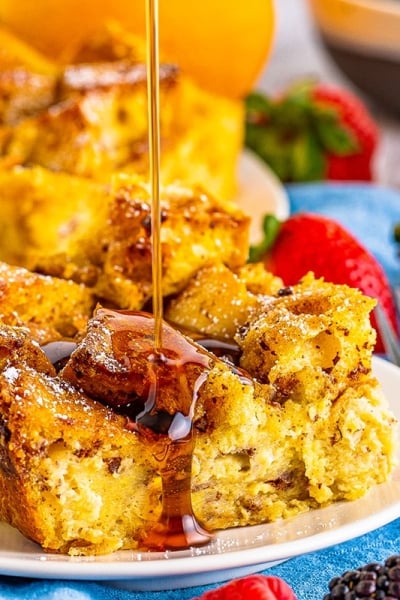
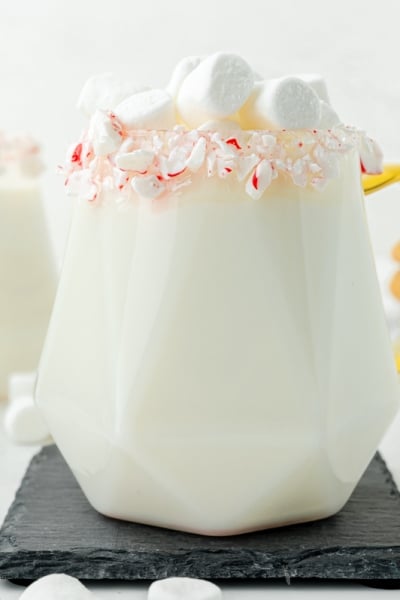
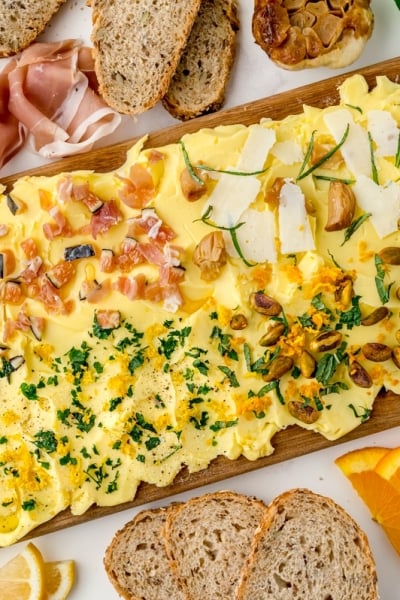
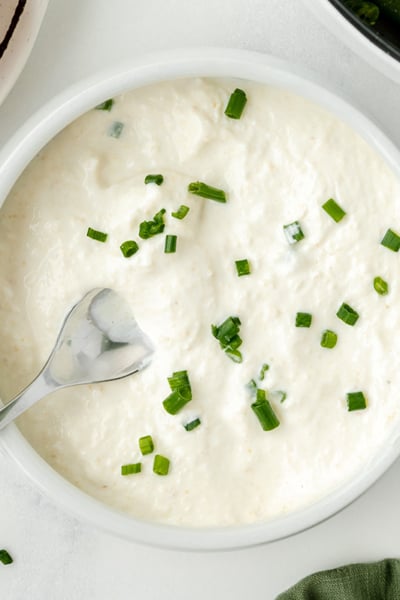
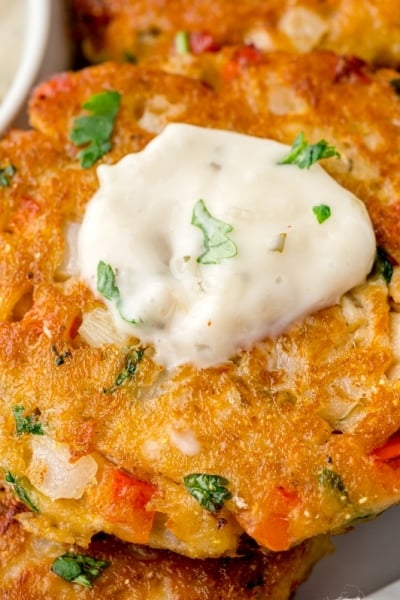
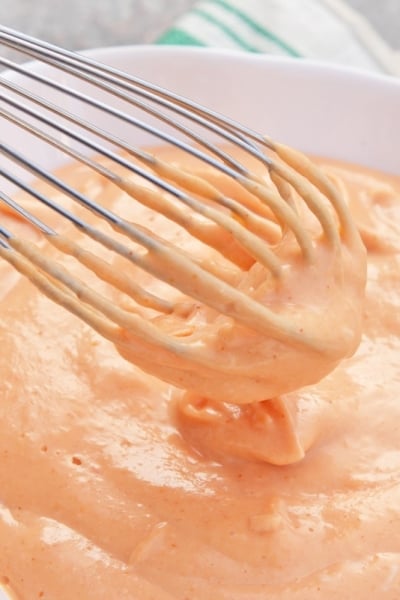
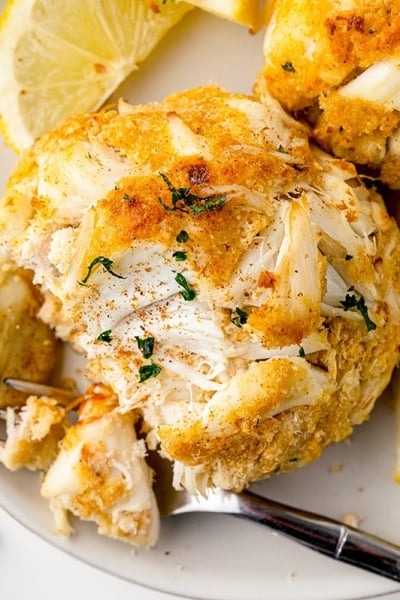
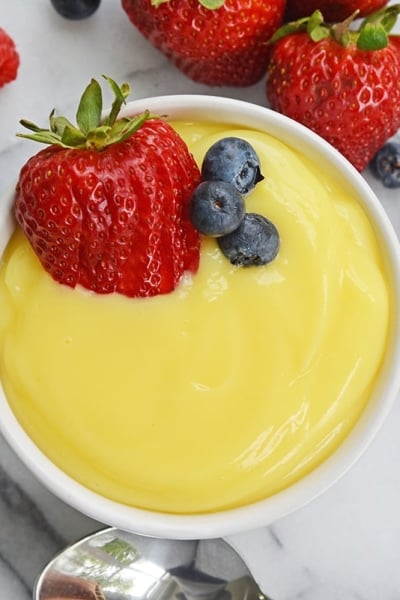
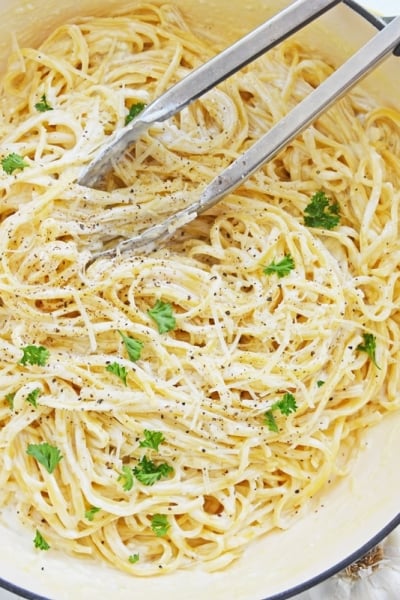
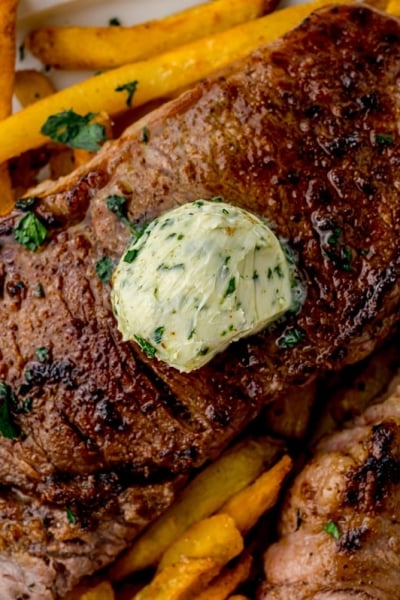







I can think of many recipes using the blender butter. Can’t wait!! 🙂
I have to try making this. I love trying new things and making my own butter would be fun.
Make my own butter?! Yes! That sounds like a great idea. Thanks for the recipe.
I sure wish my mother knew this one when we were growing up.We always churned and churned and churned!
I’ve never made butter. Thanks for the tips!
No way!!! Holy cow! I absolutely had no idea you could make butter in the blender. Thanks so much for sharing! I can’t wait to try it!
Ooh I’ve heard of making butter like this. I’m not brave enough to try.. Seems easy though 🙂
I had no idea making homemade butter was this easy. I am going to put cream on my list and try to make some of my own.
This is interesting, I never thought to make butter like this before. Sounds interesting, so much so, that I have to try this out. I think it would be a fun family kitchen night idea!
I had no idea I could make my own butter – and it’s so easy, too! How awesome is that?